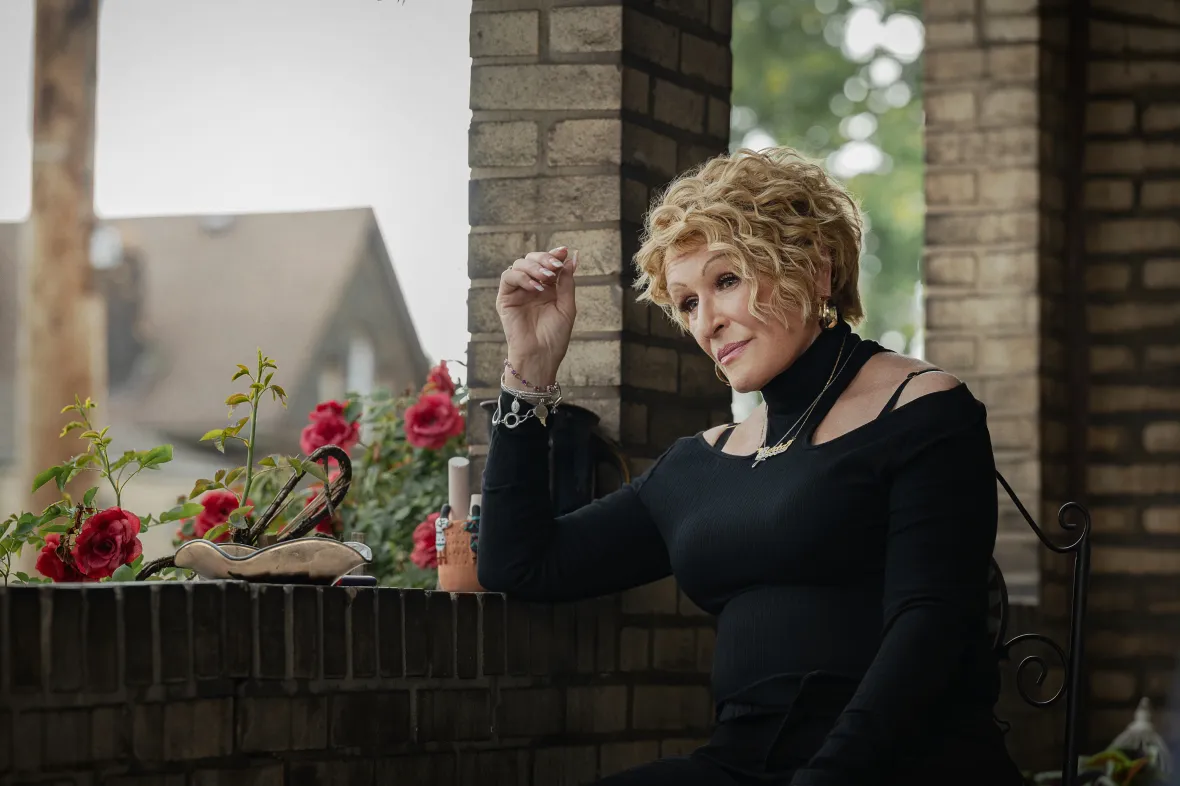Glenn Close says she felt intrigued’ by ‘white woman’ character who ‘lived her life in the Black community’ in ‘The Deliverance’
Glenn Close as Alberta in “The Deliverance.” (Photo by Aaron Ricketts/Netflix)
The actress adds that she had “no clue of how to play” the character, “a white woman who has only dated Black men.”
Glenn Close is speaking out about her character in her new film “The Deliverance.”
The 77-year-old Oscar nominee unpacked her portrayal of Alberta, a white woman with a biracial Black daughter and Black grandchildren, in an interview with PEOPLE published on Friday. Close said she had “no clue” how to “play” the character — a cancer patient who’s only dated Black men and openly flirts with her Black male nurse — but took on the role to challenge herself.
“If I have any rule that I’ve tried to hold myself to,” Close said, it’s “never to repeat myself” in movies or films. “Just for my own sake,” she added with a laugh, “I think I’d get bored.”
“Alberta is a white woman who has lived her life in the Black community and only dated Black men,” Close explains. “[She is] a woman who has been abused and I think she has become an abuser. She has found God in a very real way, and she’s hoping that her daughter will be able to clean up as well.”
(Left to right) Lee Daniels – Director/Producer/Writer, Glenn Close as Alberta and Omar Epps as Melvin on the set of “The Deliverance.” (Photo by Aaron Ricketts/Netflix)
Close explained that director Lee Daniels told her that there “are white women like this in every Black community,” a comment he also shared in an interview with theGrio.
“I was intrigued and I wanted to do her justice,” Close said, adding that Daniels told her “every Black person knows a white woman like this, but not every white person knows a white woman like this!”
Close’s comments come shortly after Daniels shared his vision for the film with theGrio. Daniels explained that audiences have “never seen this white woman before, but Black people know her.”
“For me, that was so exciting showing that character that only Black people know,” Daniels said about Alberta. “White people don’t know her. I think part of that is the originality and the provocativeness that I try to bring to my storytelling.”
Recommended Stories
The director also said he wants audiences to learn that they should believe Black women when they speak out. When Alberta’s daughter, Ebony, first reports supernatural occurrences happening in her home, no one believes her.
“So often, Black women aren’t believed. Look at Kamala Harris today, you know what I mean?” Daniels says. “It’s incredible. We don’t believe Black women. And for me, it was about making sure that our women were believed. That was really a crucial part of [the film]. I work so well with Black women. They grew me. They protected me. My aunts protected me as a kid. And so, I celebrate them, and their flaws, and their beauties, and their complications. I’m fascinated. For me, I was in a playground [on set].”

